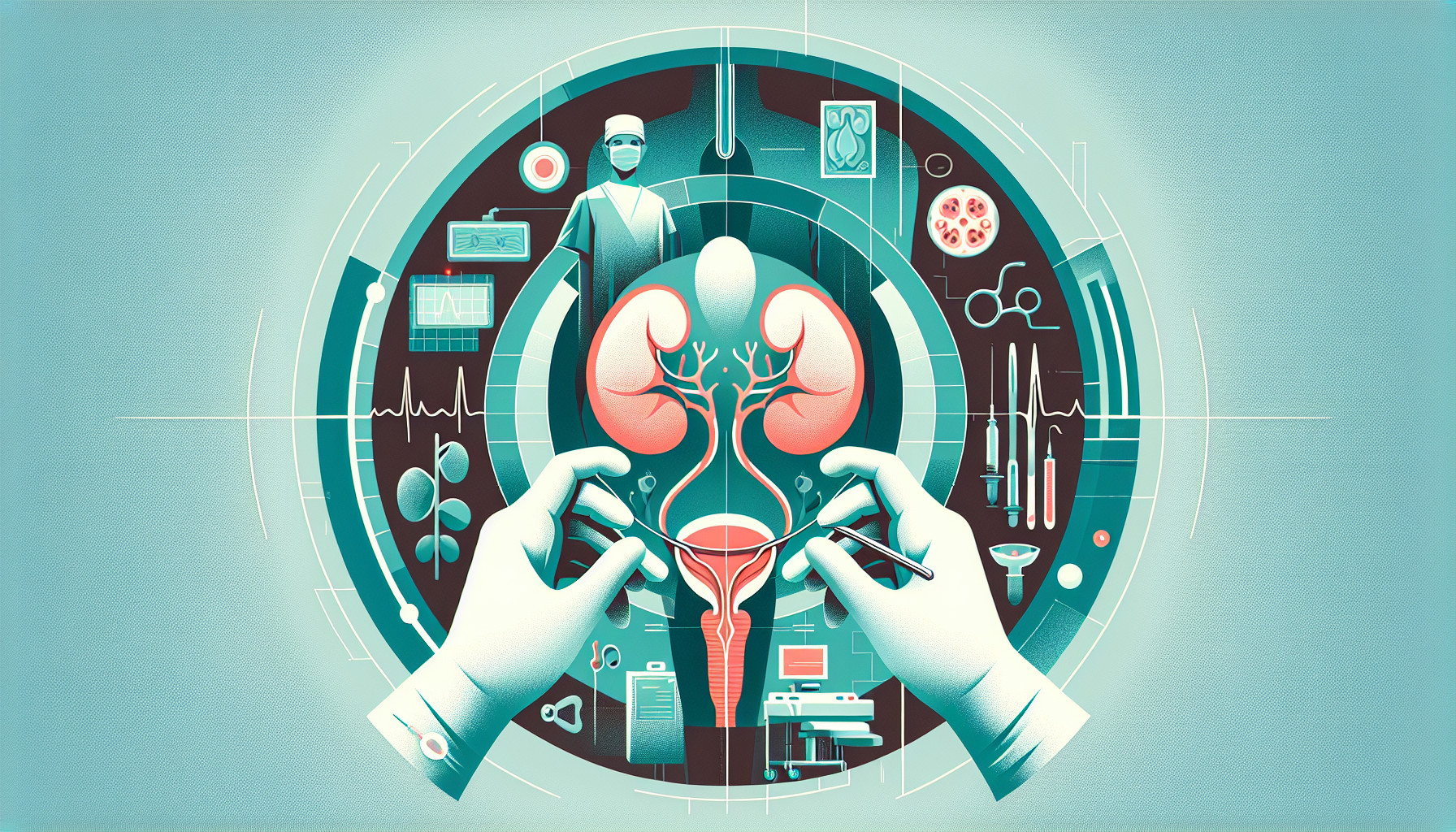Our Summary
This research paper discusses a rare complication of acute appendicitis, where the appendix ruptures into the bladder. If diagnosis and treatment of appendicitis are delayed, the risk of such complications increases. Usually, the treatment for this involves a surgical procedure known as a laparotomy, where the appendix is removed and the bladder wall is repaired. However, the paper suggests that a less invasive surgical technique called a laparoscopic surgery could be a viable option in treating complicated appendicitis cases, including this rare complication. In this paper, the authors present a successful case of treating appendicitis with bladder perforation using laparoscopic surgery.
FAQs
- What is the usual treatment for a ruptured appendix that has perforated the bladder?
- How does delayed diagnosis and treatment increase the risk of complications in acute appendicitis?
- What is the potential benefit of using laparoscopic surgery to treat complicated appendicitis cases, including bladder perforation?
Doctor’s Tip
One helpful tip a doctor might give a patient about bladder surgery is to follow post-operative instructions carefully to ensure proper healing and prevent complications. This may include taking prescribed medications, avoiding heavy lifting or strenuous activities, staying hydrated, and following a specific diet. It is also important to attend follow-up appointments with your healthcare provider to monitor your progress and address any concerns. By following these guidelines, you can help minimize the risk of complications and promote a successful recovery after bladder surgery.
Suitable For
Bladder surgery may also be recommended for patients with the following conditions:
Bladder cancer: Patients with bladder cancer may require surgery to remove the tumor or the entire bladder (cystectomy).
Bladder diverticulum: A bladder diverticulum is an abnormal pouch in the bladder wall that can cause urinary retention and recurrent urinary tract infections. Surgery may be recommended to remove the diverticulum.
Bladder prolapse: In cases of severe bladder prolapse, where the bladder drops into the vagina, surgery may be necessary to repair the pelvic floor muscles and support the bladder.
Bladder stones: Large bladder stones may require surgical removal if they cannot be passed naturally through the urinary tract.
Neurogenic bladder: Patients with neurogenic bladder dysfunction, often due to spinal cord injury or neurological conditions, may require surgery to improve bladder function and prevent urinary incontinence.
Interstitial cystitis: In severe cases of interstitial cystitis, a chronic bladder condition causing pelvic pain and urinary urgency, surgery may be considered as a last resort treatment option.
It is important for patients to consult with a healthcare provider to determine the most appropriate treatment plan for their specific bladder condition.
Timeline
Before bladder surgery:
- Patient experiences symptoms of acute appendicitis, such as abdominal pain, fever, and vomiting.
- Patient undergoes diagnostic tests, such as physical examination, blood tests, and imaging studies like ultrasound or CT scan, to confirm the diagnosis.
- If diagnosis is delayed or complications arise, such as rupture of the appendix into the bladder, surgery may be recommended.
After bladder surgery:
- Patient undergoes pre-operative preparation, including fasting and medical evaluations.
- Patient undergoes bladder surgery, either through laparotomy or laparoscopic surgery.
- During the surgery, the appendix is removed and the bladder wall is repaired.
- Post-operatively, patient is monitored in the recovery room and then moved to a hospital room for further observation.
- Patient may experience pain, discomfort, and urinary symptoms post-surgery.
- Patient is discharged from the hospital once stable and given instructions for home care and follow-up appointments.
- Patient undergoes follow-up visits with their healthcare provider to monitor recovery and address any complications or concerns.
What to Ask Your Doctor
- What are the potential risks and complications associated with bladder surgery?
- What is the success rate of bladder surgery in treating this specific complication of appendicitis?
- How long is the recovery period after bladder surgery?
- Will I need a catheter after the surgery, and if so, for how long?
- What are the expected outcomes and long-term effects of bladder surgery in this case?
- Are there any alternative treatment options to bladder surgery for this complication?
- How experienced are you in performing laparoscopic surgery for complicated appendicitis cases?
- Will I need to make any lifestyle changes or follow a specific post-surgery care plan?
- What should I expect during the surgical procedure and the immediate post-operative period?
- Are there any specific questions or concerns I should discuss with a urologist or other specialist before undergoing bladder surgery?
Reference
Authors: Álvarez-Sores ED, Barba-Valadez L, Martínez-Ortiz CA, Cuendis-Velázquez A. Journal: Cir Cir. 2025;93(1):111-116. doi: 10.24875/CIRU.22000135. PMID: 40239970
